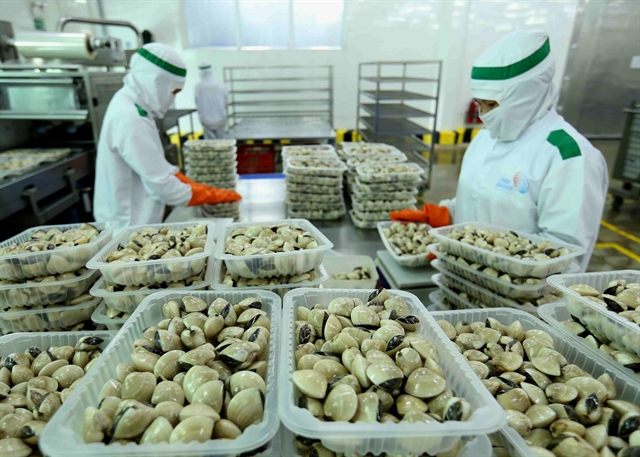The European Parliament (EP) on Wednesday ratified the EU-Viet Nam Free Trade Agreement (EVFTA) and the EU-Viet Nam Investment Protection Agreement (EVIPA).

The European Parliament (EP) on Wednesday ratified the EU-Viet Nam Free Trade Agreement (EVFTA) and the EU-Viet Nam Investment Protection Agreement (EVIPA).
The EVIPA was passed with 407 votes for, 188 against and 53 abstentions; and the EVFTA, with 401, 192 and 40, respectively.
At a press conference on this event held by the Ministry of Industry and Trade in Ha Noi the same day, Minister of Industry and Trade Tran Tuan Anh said: "This is a meaningful result for Viet Nam and the EU, two comprehensive strategic partners.”
The ratification of these two agreements has created a sustainable foundation for the two sides to improve quality in comprehensive cooperation, he said.
It has also shown the EU values Viet Nam as a comprehensive and trustworthy partner in Southeast Asia and the world over, the minister said.
He described the European Union – Viet Nam Free Trade Agreement (EVFTA) as a lever for growth, opening up opportunities to infiltrate into a market with a gross domestic product of US$18 trillion.
Nearly 100 per cent of Viet Nam's goods to the EU will see their import tariffs eliminated in the short term. This is the highest level of commitment that a partner has given to Viet Nam in signed free trade agreements, he said.
Meanwhile, the two agreements are expected to be ratified in the upcoming session of the Viet Nam's Nation Assembly in April-May. They are likely to come into effect from July this year in Viet Nam, he said.
The EVFTA is expected to create a major push for Viet Nam’s exports, helping diversify the country’s exports and markets.
Under the agreement, Viet Nam will cut 65 per cent of import tax on EU commodities after the deal takes effect, while the rest will be erased over a 10-year period. Meanwhile, the EU will cut more than 70 per cent of tariffs on Viet Nam’s commodities after the deal takes effect, while the rest will be abolished over the seven subsequent years.
The two documents were signed in Ha Noi on June 30 last year after eight years of negotiation. They include intensive, extensive and comprehensive commitments covering the fields of economy, trade, investment and sustainable development issues.
According to research by the Ministry of Planning and Investment, the two deals will help Viet Nam increase its GDP by 4.6 per cent and its exports to the EU by 42.7 per cent by 2025. Meanwhile, the European Commission has projected the EU’s GDP to increase by $29.5 billion and its exports to Viet Nam by 29 per cent by 2035.
The investment commitments will replace bilateral investment agreements between Viet Nam and EU members, helping the country continue to reform its economic structure, perfect business environment and institutions, and facilitate EU investors’ business in Viet Nam. — VNS
In box: ILO welcomes EP’s EVFTA ratification
The International Labour Organisation (ILO) office in Viet Nam on February 12 said it welcomes the European Parliament’s ratification of the European Union – Vietnam Free Trade Agreement (EVFTA) in Paris earlier the same day, which is expected to bring economic benefits to both sides.
ILO Vietnam Country Director Chang-Hee Lee said the deal’s requirements on labour and environment will help bring about benefits for all sides, help Viet Nam achieve sustainable development and ensure that the current growth is achieved at the expense of future generation’s opportunities.
According to him, Viet Nam’s entry to the EVFTA and the Comprehensive and Progressive Agreement for Trans-Pacific Partnership (CPTPP) will make it easier for the country to modernise labour laws and industrial relations systems. The adoption of the revised Labour Code in November 2019 brought its legal framework closer to ILO fundamental conventions.
“Modern industrial relations based on recognition of freedom of association, together with better skilled workforce and effective social protection, is a key social driver for Viet Nam to move towards upper middle income country in a sustainable manner,” he said. — VNS





